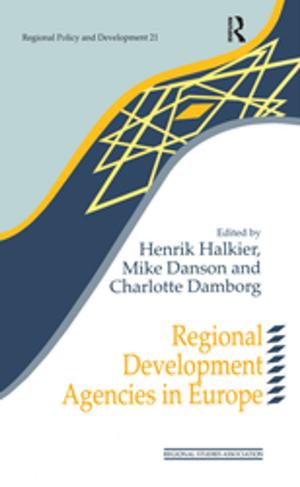Development and Vulnerability in Close Relationships
Nonfiction, Health & Well Being, Psychology, Developmental Psychology| Author: | ISBN: | 9781134779451 | |
| Publisher: | Taylor and Francis | Publication: | June 17, 2013 |
| Imprint: | Psychology Press | Language: | English |
| Author: | |
| ISBN: | 9781134779451 |
| Publisher: | Taylor and Francis |
| Publication: | June 17, 2013 |
| Imprint: | Psychology Press |
| Language: | English |
How do people develop in their important relationships? How do two people come together to form a new, close relationship? How do relationships affect or determine who we are and who we become?
These questions should be central to the study of mind and development, but most researchers neglect relationships and focus instead on analyses of individuals, as if people were basically alone, experiencing occasional fleeting moments with other people. Research based on this individualist assumption has dominated the behavioral and clinical sciences, but there are other voices, and they are growing. In this book, many of the scholars who are moving relationships and attachments back to the center of human development outline their central concepts, findings, and perspectives.
People are fundamentally social, and relationships are part of the fabric of being human, forming an essential foundation that molds each person's mind and action. A mind does not reside in one person but in relationships and communities, composed of many people's interconnected minds, which mutually support and define each other. From the start and throughout life, each person develops strengths and vulnerabilities in important relationships in communities and cultures. Those relationships are so central to each person's activity and experience that without them, no scientific explanation can even begin to analyze mind and action. There is no mind without other people. There is no psychological vulnerability that does not involve others.
The contributors to this book aim to establish a firm foundation for the role of relationships in human activity and health and to promote strong research by bringing together in one place most of the best research and theory on development and relationships. Their goal is to stimulate a more radical inclusion of relationships in mind, an ecological focus on the ways that relationships constitute action, feeling, and thought.
How do people develop in their important relationships? How do two people come together to form a new, close relationship? How do relationships affect or determine who we are and who we become?
These questions should be central to the study of mind and development, but most researchers neglect relationships and focus instead on analyses of individuals, as if people were basically alone, experiencing occasional fleeting moments with other people. Research based on this individualist assumption has dominated the behavioral and clinical sciences, but there are other voices, and they are growing. In this book, many of the scholars who are moving relationships and attachments back to the center of human development outline their central concepts, findings, and perspectives.
People are fundamentally social, and relationships are part of the fabric of being human, forming an essential foundation that molds each person's mind and action. A mind does not reside in one person but in relationships and communities, composed of many people's interconnected minds, which mutually support and define each other. From the start and throughout life, each person develops strengths and vulnerabilities in important relationships in communities and cultures. Those relationships are so central to each person's activity and experience that without them, no scientific explanation can even begin to analyze mind and action. There is no mind without other people. There is no psychological vulnerability that does not involve others.
The contributors to this book aim to establish a firm foundation for the role of relationships in human activity and health and to promote strong research by bringing together in one place most of the best research and theory on development and relationships. Their goal is to stimulate a more radical inclusion of relationships in mind, an ecological focus on the ways that relationships constitute action, feeling, and thought.















